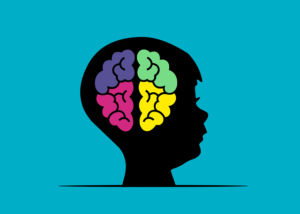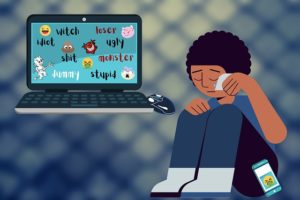 How Does Social Media Lead to Teen Suicide?
How Does Social Media Lead to Teen Suicide?
As a Memphis social media lawyer, I personally was shocked when I learned the level of connection between social media and teen suicide.
In Memphis and around the world, desperate parents have reported their once-happy and well-balanced child became addicted to social media and developed severe depression. In some cases, it caused them to lose their lives.
Some people might call this melodramatic. But since 2007, as social media first started, the suicide rate for 10-14-year-olds has doubled, and for young girls it’s quadrupled.
Our Memphis attorneys are actively seeking clients related to social media and teen suicide, and you should know why. Based on what we’ve seen and heard from parents, investigators, and the companies themselves, it’s well beyond time to sound the alarm.
The Primary Ways Social Media Encourages Self-Harm in Children
 Addictive Design
Addictive Design
Social media companies designed their products to be addictive. That’s even more true for young people, who struggle with self-regulation.
It’s exactly why we don’t give kids tobacco or alcohol. Kids can’t tell when something is harming them, and they’re less able to stop addictive behavior. So it should come as no surprise that kids report being miserable on the app and unable to stop. And that’s according to Facebook’s own internal reports.
Social media addiction leads to high levels of isolation and depression and can affect a child’s social development. All of these factors impact a child’s risk of suicide and self-harm.
Amplification
When social media companies decide what to show users, they depend on algorithms. Those algorithms tend to promote extreme content meant to arouse strong reactions and keep kids on the site longer.
For children with depression and thoughts of self-harm, this can include videos about suicide and even step-by-step instructions. Hashtags about self-harm make it easy for a young person to find some of the worst content imaginable.
(I’ve seen this personally as a Memphis social media lawyer. For another example, see our content on social media and child eating disorders).
Children and teens are especially vulnerable to this kind of amplification, which sometimes openly encourages kids to hurt themselves.
 Culture of Harassment and Abuse
Culture of Harassment and Abuse
In private messages and comments across social media, children and teens face harassment from peers and strangers. Some kids’ DMs include encouragement to kill themselves and other forms of extreme cyberbullying. For young girls, social media has led to a rise in “revenge porn,” in which graphic photos of them might be placed online against child pornography laws.
On top of all the other ways social media can hurt kids’ mental health, these abusive messages can be enough to drive a child toward harmful behavior.
Lack of Parental Control
The biggest social media platforms contain videos and other content that help kids get around parental controls. Children may learn from other users how to hide certain behaviors from their parents. They can also see how others get around locks and create secret accounts.
In addition, the companies haven’t followed their own age restrictions. Plenty of kids report using Instagram as young as 8 years old. Rather than block the site from users under 13–as they claim to do despite all evidence–the company instead decided to pursue an Instagram for young children. (They continued this plan until public outcry became too loud.)
 The Social Media Companies Know
The Social Media Companies Know
The social media companies found out about these issues early on through their own studies. They knew their sites were causing mental health problems for teens and children. And yet they did nothing at best.
In fact, they often doubled down. They looked for more ways to engage children, keep them on the sites, and use their addiction to make the companies money. In one internal document, a Facebook employee asked why the company was so interested in tweens. “They are a valuable but untapped audience,” was the response.
According to the Wall Street Journal, Facebook’s own researchers alerted the company that “Misinformation, toxicity, and violent content are inordinately prevalent among reshares.” Yet even with this information, Facebook and Instagram continued to amplify reshares of violent content, including to children and teens.
 A Memphis Social Media Lawyer Here for You
A Memphis Social Media Lawyer Here for You
As Marsha Blackburn, our senator here in Tennessee, said at a hearing on this subject, these companies have “a legal and moral obligation” to our kids. And they have failed.
- They failed to protect our kids from violent and abusive content.
- They failed to address skyrocketing mental health problems and suicide in children using their apps.
- They failed to give parents information and control.
It’s time they be held accountable for what they’ve done.
If your child experienced suicide or self-harm as a result of using these apps, you are not alone. Your child simply used the apps as they were designed. And along with many other families like yours, it cost them everything.
We can’t make your family whole again. But we can help make sure you get the compensation you deserve, and we can help make sure it doesn’t happen to any more unsuspecting children.
Contact us today at 901-327-2100 to get started, or just fill out the form below. We look forward to speaking with you.
Social Media Case Inquiry
I would like to find out more about the social media lawsuit and see if I have a case.
If you or someone you know needs mental health assistance right now, call 988 to reach the 988 Suicide and Crisis Lifeline. This is a free, confidential crisis hotline that is available to everyone in the US 24 hours a day, 7 days a week.
